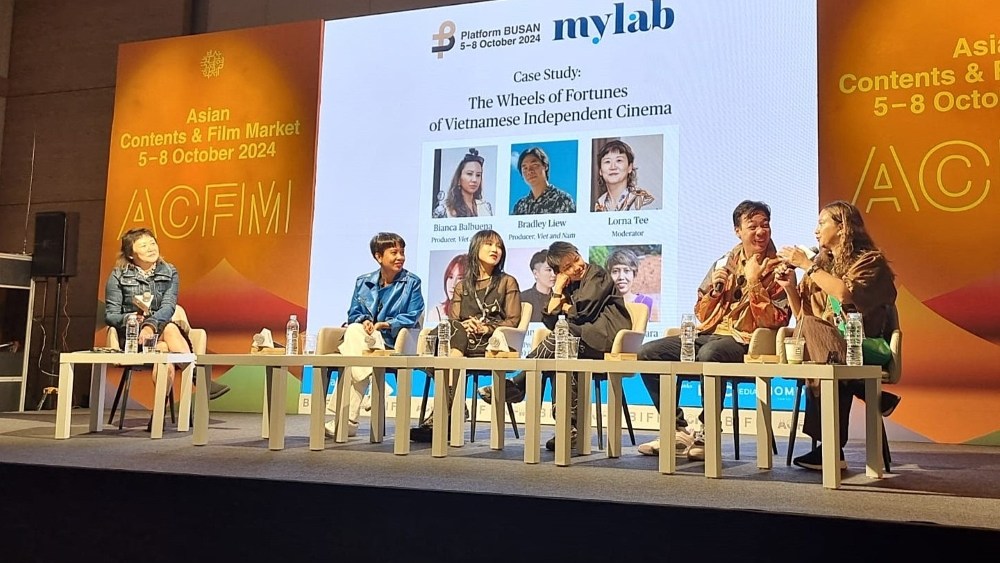Vietnam Independent Cinema Is Reaching Out
Two Vietnamese-flavored films in prominent festival slots this year have put the spotlight on the country’s emerging indie cinema scene.
A discussion in Busan on Saturday highlighted the sector’s behind-the-scenes struggles, which center on ever-changing financing options, limited distribution and censorship.
“Now is the best time to be a Southeast Asia filmmaker. We can now produce without Europe. That was not possible ten years ago,” said Bianca Balbuena, the Philippines-based lead producer on “Viet and Nam” the Truong Minh Quy-directed gay drama that debuted in Cannes this year.
“More people are getting opportunities to make films. Festivals are starting up in Vietnam too But still there is a discrepancy between festival aspirations and the reality for independent filmmakers,” said Truong in a video message. “Censorship is too heavy. Domestic [Vietnamese] support for independent film is none.”
“Viet and Nam” was 12 years in the making and was structured as a multinational co-production. But, due to a ban in Vietnam, it had to drop its Vietnamese nationality and become a Philippines-led co-production instead.
But the film’s producers were able to lean in to a growing trend of unofficial co-production within Asia. “When we took ‘Viet and Nam’ to the Talent Tokyo project market we realized that we could raise money for non-Philippines films. Finally, it seems that grants and financial support from within the region are in place and able to be combined with that from Europe. Something has changed,” said co-producer Bradley Liew. The film was able to raise 85% of its production budget from soft money sources.
Doung Dieu Linh, the Singapore-based director of recent Venice festival entry “Don’t Cry, Butterfly” led the panelists in describing changes within the Vietnamese film sector.
“I’ve been very impressed by Vietnamese cinema. Local films are succeeding, audiences are watching them, they are replacing Hollywood,” she said.
Tan Si En, the film’s lead producer, at Momo Films, said, “CJ ENM and other firms are investing in talent in Southeast Asia and that is beginning to change things.”
Liew said, “A lot of TV commercials are being made in Vietnam these days. People are getting well paid. But many are willing to take minimum pay for 60 days to do something independent. Crews are very eager to work, even in coal mines and difficult conditions.”
A shortage of government finance in Vietnam and pressures from Vietnamese conglomerates to give films a mainstream or commercial flavor, mean that the Vietnamese indie sector is still looking overseas to Asia and Europe for cash. But some would like to drop Europe from the equation – due to higher costs imposed by European involvement and due to communication difficulties.
“Mine is a film about spirits but not horror story. That was difficult for Europeans to get behind,” said Doung.
“We took it to European project labs, but there was still a gap in understanding. Fortunately, [Asian investor] Purin Pictures came in without needing to be a coproducer. After that, other money followed in,” said Tan.
“There is no way to overcome the cultural differences when working with Europeans. They want to have plans, and to get their money back. In Asia the plans change every day,” said Liew. “What we have to remember, however, is that we are all working to the same goal.”


